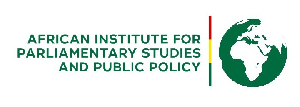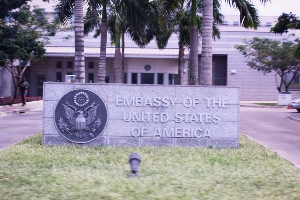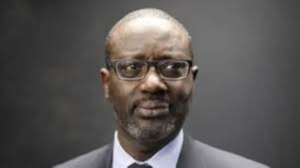Ghana’s governance framework has long been touted as one of Africa’s success stories, particularly for its peaceful transitions of power and stable democratic institutions. However, beneath the surface of these achievements lies a critical set of gaps that undermine the effectiveness, accountability, and inclusiveness of the governance system.
As the Executive Director of the African Institute for Parliamentary Studies and Public Policy (AIPSAPP), I believe a comprehensive approach is required to address these challenges, ensuring that Ghana's governance system evolves to meet the demands of its citizens in a fast-changing global landscape.
Identifying the Gaps in Ghana’s Governance System
Weak Oversight and Accountability Mechanisms
Oversight and accountability are fundamental pillars of good governance, yet Ghana's framework in this area faces significant challenges. Parliamentary committees, tasked with scrutinizing government activities, often lack the resources and expertise required for effective oversight. Inadequate funding, limited technical training for Members of Parliament (MPs), and delays in accessing essential government data hinder their ability to monitor and evaluate the executive's actions comprehensively.
Additionally, political partisanship compromises objectivity, as MPs often prioritize party loyalty over national interests, particularly when their party is in power. Furthermore, critical institutions like the Auditor-General’s Office produce reports highlighting financial mismanagement, yet these findings frequently go unaddressed due to weak enforcement and the non-implementation of Public Accounts Committee (PAC) recommendations.
Corruption and Transparency Deficit
Corruption and transparency deficits remain significant obstacles to Ghana’s governance and development, eroding public trust and diverting critical resources from essential services like healthcare and infrastructure.
Institutions like the Office of the Special Prosecutor (OSP) and CHRAJ are often underfunded and lack the political independence needed to tackle corruption effectively, while enforcement of Auditor-General’s reports remains weak, fostering a culture of impunity. Transparency challenges, including limited access to government information and inadequate whistleblower protections, further shield misconduct from scrutiny.
Inefficient Public Sector
Ghana's public sector often grapples with inefficiencies stemming from bureaucratic red tape, poor service delivery, and underperformance. These inefficiencies lead to delays in implementing critical projects and waste of public resources.
Overstaffing in some agencies coexists with critical skill gaps in others, further exacerbating the problem. Addressing this requires public sector reform, including capacity-building initiatives, performance-based evaluations, and the integration of technology to streamline processes and improve efficiency.
Exclusion of Marginalized Groups
Despite progress in governance, marginalized groups, including women, youth, and persons with disabilities, often face systemic barriers to full participation in decision-making processes. This exclusion perpetuates inequality and stifles the potential for inclusive development.
A deliberate effort is needed to incorporate affirmative action policies, strengthen gender-sensitive budgeting, and ensure equitable representation in governance structures to harness the contributions of all segments of society.
Lack of Policy Continuity
Frequent changes in political leadership often lead to abrupt shifts in policies and the discontinuation of critical national programs. This lack of policy continuity undermines development efforts and wastes resources. Establishing a non-partisan national development framework with clear priorities and timelines can ensure that long-term projects are insulated from political transitions and remain focused on delivering results for the public.
Weak Local Governance
Local governance in Ghana remains weak due to inadequate funding, limited autonomy, and lack of capacity at the district level. Many Metropolitan, Municipal, and District Assemblies (MMDAs) struggle to deliver basic services and engage communities in decision-making.
Empowering local governments through fiscal decentralization, capacity-building programs, and stronger accountability mechanisms can enable them to address local needs effectively and contribute to national development.
Proposing Comprehensive Solutions
Strengthening Parliamentary Oversight
To ensure effective governance, Ghana’s Parliament must be empowered to hold the Executive accountable through robust oversight mechanisms. This includes increasing Parliament’s access to resources, enhancing the capacity of parliamentary committees, and strengthening the enforcement of Auditor-General’s recommendations. Parliament must also embrace digital tools for transparency and adopt regular performance audits to track government programs and expenditure.
Enhancing Anti-Corruption Measures
Ghana needs a multi-faceted approach to combat corruption and improve transparency. Empowering institutions like the Office of the Special Prosecutor (OSP) with adequate resources and independence is critical. Technology can play a vital role, with the expansion of e-governance platforms to reduce human interference in service delivery.
Whistleblower protections and stiffer penalties for corruption-related offenses must also be prioritized. Public education campaigns can further strengthen the culture of accountability.
Public Sector Reform
Reforming Ghana’s public sector is essential to addressing inefficiencies and improving service delivery. This includes implementing performance-based evaluations, addressing overstaffing while filling skill gaps, and modernizing operations with digital technology. Streamlined bureaucratic processes and a merit-based recruitment system will improve responsiveness and accountability across public institutions.
Promoting Inclusivity in Governance/b>
Inclusive governance is essential for sustainable development. Affirmative action policies should ensure the representation of marginalized groups such as women, youth, and persons with disabilities in decision-making roles. Gender-sensitive budgeting and inclusive policies must be institutionalized to promote equity and empower all segments of society.
Ensuring Policy Continuity
A non-partisan national development framework, such as a long-term national policy agenda, can prevent disruptions caused by political transitions. Legal safeguards and bipartisan agreements should be established to protect ongoing projects and programs. This will ensure that policies remain aligned with Ghana’s development goals, regardless of changes in political leadership.
Revitalizing Local Governance
Strengthening local governance requires fiscal decentralization to provide Metropolitan, Municipal, and District Assemblies (MMDAs) with adequate resources and autonomy. Capacity-building initiatives for local leaders, enhanced community engagement in decision-making, and stronger accountability mechanisms will ensure that local governments can effectively address community needs. Supporting initiatives such as infrastructure development and public-private partnerships at the district level will further bolster their impact.
A Clarion Call
To operationalize these solutions, a collaborative effort is required among all stakeholders, including Parliament, the executive, civil society, and the private sector. As Ghana approaches 2025, the focus must be on strengthening the pillars of governance to create a system that is transparent, inclusive, and accountable.
At the African Institute for Parliamentary Studies and Public Policy (AIPSAPP), we are committed to working with stakeholders to implement these reforms. Through capacity-building programs, consultancy services, and rigorous policy analysis, we aim to catalyze the transformation of Ghana’s governance framework into a model for Africa and the world.
The future of Ghana’s democracy depends on the ability of its leaders to address these gaps decisively. Together, we can build a governance system that fulfills the aspirations of every Ghanaian and drives sustainable national development.
Opinions of Tuesday, 7 January 2025
Columnist: Mohammed Yussif Alhassan















